The correct rules for drinking water are to drink at least eight glasses of water per day and to ensure that the water is clean and free from contaminants. This article will discuss the importance of properly consuming water and provide tips for maintaining good hydration habits.
Drinking water is essential for maintaining good Our bodies are made up of approximately 60% water, and it is vital for carrying out various functions such as digestion, circulation, and regulation of body temperature. Proper hydration helps to flush out toxins, keep our skin healthy, and maintain the balance of bodily fluids.
However, it is not just about drinking any water; it is essential to ensure that the water we consume is clean and free from contaminants. Contaminated water can lead to various health issues, including gastrointestinal problems and waterborne diseases. Therefore, it is crucial to follow the correct rules for drinking water to ensure our well-being. In the following sections, we will explore these guidelines in more detail.
Importance Of Hydration
Drinking enough water is crucial for our overall well-being. Staying hydrated is not just a matter of quenching your thirst, but it plays a vital role in maintaining the proper functioning of your body. It is important to understand the significance of hydration and how it impacts our health. In this section, we will explore the role of water in the body and common signs of dehydration.
The Role Of Water In The Body
Water is like a magical elixir that keeps our bodies functioning optimally. It is involved in numerous essential bodily processes and performs vital roles:
- Transportation: Water helps transport nutrients, oxygen, and hormones throughout the body. It acts as a carrier, ensuring that these substances reach their intended destinations.
- Temperature Regulation: Our bodies rely on water for regulating body temperature through processes like sweating and evaporation. This helps to prevent overheating and maintain a stable internal environment.
- Joint Lubrication: Water acts as a lubricant for our joints, allowing them to move smoothly and reducing the risk of friction and injury.
- Digestion: It plays a critical role in digestion by aiding the breakdown of food and absorption of nutrients. Water also helps prevent constipation and ensures the smooth functioning of the digestive system.
- Cell Function: Water is essential for proper cellular function. It helps maintain the balance of electrolytes, supports the removal of waste products, and assists in various metabolic processes.
As you can see, water is indispensable for the optimal functioning of our bodies. Without adequate hydration, these essential functions can be compromised, leading to a host of health issues. Understanding the roles water plays in our bodies can help us appreciate the importance of staying hydrated.
Common Signs Of Dehydration
Dehydration occurs when the amount of water leaving our bodies is greater than the amount we are consuming. It can be caused by various factors such as excessive sweating, vomiting, diarrhea, or simply not drinking enough water. Recognizing the signs of dehydration is crucial, as prompt action can prevent further complications. Some common signs of dehydration include:
- Thirst: Feeling thirsty is often the first indication that your body needs water. It’s important not to ignore this signal and to drink water as soon as you feel thirsty.
- Dry Mouth and Lips: When you are dehydrated, your mouth and lips may feel dry and parched. This can be accompanied by a sticky sensation inside your mouth.
- Dark Urine: Urine color can be a good indicator of hydration levels. Dark yellow or amber-colored urine suggests significant dehydration, while clear or light yellow urine indicates adequate hydration.
- Fatigue and Dizziness: Dehydration can leave you feeling tired, weak, and lacking energy. It may also cause dizziness or lightheadedness.
- Headaches: Lack of water can lead to headaches or migraines. If you frequently experience headaches, dehydration could be a contributing factor.
- Dry Skin: Insufficient hydration can cause your skin to become dry, tight, and less elastic. It may also lead to itchiness or flaky patches.
Being aware of these signs can help you take proactive measures to prevent dehydration and maintain adequate hydration levels. Remember to drink water regularly throughout the day, especially during physical activity or in hot weather conditions.
Tip 1: Set A Daily Water Intake Goal

Your daily water intake plays a crucial role in maintaining your overall well-being. It helps your body stay hydrated, supports digestive health, regulates body temperature, and aids in the elimination of toxins. To ensure you are getting enough water throughout the day, it’s important to set a daily water intake goal. By determining how much water you should be consuming, you can track your progress and make adjustments if necessary.
Determining Your Personal Water Needs
While the general recommendation is to consume eight 8-ounce glasses of water per day, it’s essential to assess your personal water needs. Many factors influence the amount of water you should be drinking, such as your body weight, activity level, climate, and overall health. To determine your personal water intake goal, you can use a simple formula:
Bodyweight (in pounds) x 0.5 = Daily water intake (in ounces)
For example, if you weigh 150 pounds, your daily water intake goal would be 75 ounces. Keep in mind that this is a general guideline, and individual needs may vary.
Tools And Apps To Track Water Consumption
To track your water consumption and ensure you’re reaching your daily intake goal, there are various tools and apps available that make it easy and convenient. These tools allow you to log your water intake, set reminders, and monitor your progress throughout the day. Here are a few popular options:
| Tool/App Name | Description |
|---|---|
| WaterMinder | This app lets you set a daily water intake goal, customize cup sizes, and track your hydration progress with visualizations. |
| MyWaterBalance | MyWaterBalance provides personalized water intake recommendations and features a variety of hydration reminders and statistics. |
| Hydro Coach | This app allows you to set your daily water intake goal and sends you reminders at chosen intervals to ensure you stay hydrated. |
By using these tools and apps, you can stay accountable and motivated to reach your water intake goals. Remember, consistency is key when it comes to proper hydration!
Tip 2: Drink Water First Thing In The Morning
To kickstart your day on a healthy note, it is essential to drink water first thing in the morning. This simple habit has numerous benefits for your overall well-being. Not only does it hydrate your body after hours of sleep, but it also helps in flushing out toxins and provides a jumpstart to your metabolism. Let’s explore the benefits of morning hydration and different ways to incorporate water into your morning routine.
Benefits Of Morning Hydration
Starting your day with a glass of water provides several advantages that positively affect your body and mind. Here are some benefits of morning hydration:
- Rehydrates Your Body: As you sleep, your body loses water through breathing and sweating. Drinking water in the morning replenishes the lost fluids, helping you stay hydrated throughout the day.
- Aids in Digestion: Water consumption in the morning activates your gastrointestinal tract, stimulating digestion. This can prevent common digestive issues and improve overall gut health.
- Boosts Metabolism: Research suggests that drinking water in the morning can increase your metabolic rate, aiding in weight management. It kickstarts your metabolism and keeps it functioning optimally throughout the day.
- Flushes Toxins: Overnight, your body performs detoxification processes. Drinking water in the morning helps flush out toxins, allowing your body to function efficiently and maintain good health.
- Enhances Brain Function: Proper hydration positively impacts cognitive function. Starting your day with water can improve focus, concentration, and overall alertness.
Different Ways To Incorporate Water In The Morning Routine
Now that you know the benefits, let’s explore some easy and refreshing ways to incorporate water into your morning routine:
- Plain Water: The simplest way is to drink a glass of plain water on an empty stomach. You can add a squeeze of lemon for a refreshing twist and an extra boost of vitamin C.
- Herbal Tea: If you prefer warm beverages, starting your day with a cup of herbal tea is a great option. Choose from a variety of herbal teas like chamomile or green tea, which offer additional health benefits.
- Fruit-Infused Water: Infusing water with slices of fruits like strawberries, oranges, cucumber, or mint leaves can add a subtle flavor while providing additional vitamins and antioxidants.
- Coconut Water: For a tropical twist, try replacing plain water with coconut water. It not only hydrates you but also provides essential electrolytes.
- Smoothies and Fresh Juices: Incorporate water into your morning routine by making a nutritious smoothie or freshly squeezed juice. These options not only hydrate you but also provide essential nutrients.
Remember, starting your day with water sets the tone for a healthy lifestyle. By prioritizing hydration in the morning, you can reap numerous benefits for your body and mind throughout the day.
Tip 3: Stay Hydrated Throughout The Day

In order to maintain optimal health and well-being, it is crucial to stay hydrated throughout the day. Water plays a vital role in our body, regulating body temperature, aiding digestion, and transporting nutrients. Dehydration can lead to fatigue, dizziness, and even more serious health complications. By sipping water regularly and following these hydration tips for busy individuals, you can ensure that you stay hydrated and perform at your best.
Sip Water Regularly
One of the simplest and most effective ways to stay hydrated is to sip water regularly throughout the day. Instead of waiting until you feel thirsty, make it a habit to take small sips of water at regular intervals. This helps to maintain a consistent level of hydration and prevents the body from becoming dehydrated. Keep a water bottle handy and take a sip every hour or so. By incorporating this into your routine, you can easily meet your daily water intake requirement.
Hydration Tips For Busy Individuals
I understand that it can be challenging to stay hydrated when you have a busy schedule. However, with a few simple tips, you can easily incorporate hydration into your daily routine.
- Set reminders: Use phone alerts or productivity apps to remind yourself to drink water at regular intervals. This will help you stay on track and ensure you do not forget to hydrate.
- Carry a water bottle: Invest in a reusable water bottle that you can take with you wherever you go. This way, you will always have water readily available and be less tempted to reach for sugary drinks or other beverages.
- Spice up your water: If you find plain water boring, try adding natural flavors like lemon, cucumber, or mint to enhance the taste. You can also opt for herbal teas or infused water for variety.
- Make it a habit: Establish a routine of drinking water at specific times of the day. Whether it’s before a meal, after a workout, or during a break, associating hydration with daily activities can help you stay consistent.
By implementing these practical strategies, you can ensure that staying hydrated becomes an effortless part of your day, no matter how busy you are.
Tip 4: Use A Reusable Water Bottle
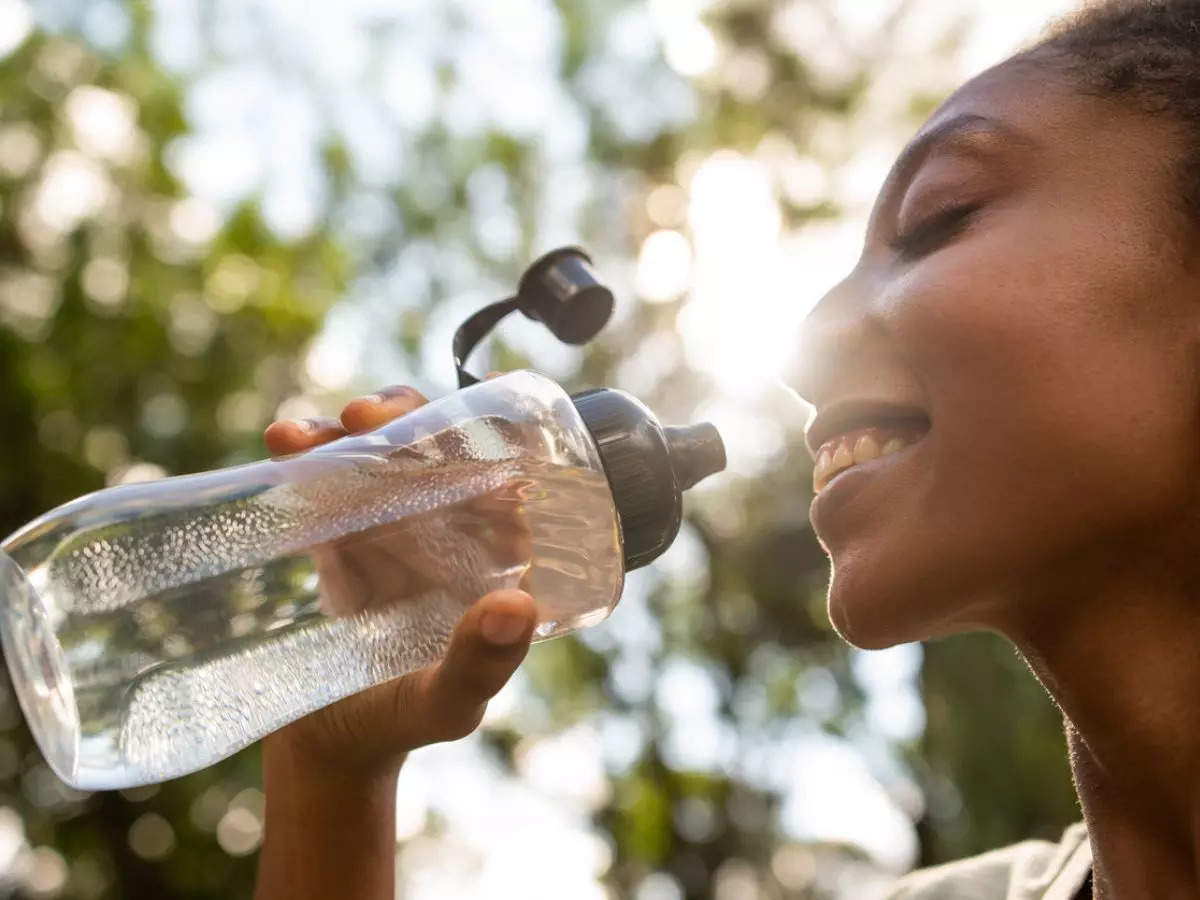
As we strive to incorporate more eco-friendly habits into our daily lives, using a reusable water bottle is a simple yet effective step in the right direction.
Environmental Impact Of Single-use Plastic Bottles
The environmental impact of single-use plastic bottles is significant and cannot be ignored. These bottles contribute to pollution, waste, and resource depletion. Let’s take a closer look:
- Plastic pollution: Single-use plastic bottles are one of the main contributors to plastic pollution in our oceans, rivers, and landfills. These bottles take hundreds of years to decompose, leading to devastating consequences for our environment and wildlife.
- Resource depletion: Manufacturing plastic bottles requires large amounts of fossil fuels, water, and energy. This not only depletes natural resources but also contributes to greenhouse gas emissions and climate change.
- Waste generation: The disposal of single-use plastic bottles creates massive amounts of waste. Even if they are recycled, the recycling process itself consumes energy and resources. Additionally, many plastic bottles end up in landfills or as litter, further exacerbating the waste problem.
Top Features To Look For In A Reusable Water Bottle
When choosing a reusable water bottle, there are several features to consider. These features not only enhance your drinking experience but also contribute to a more sustainable lifestyle:
- Durable and long-lasting: Opt for a reusable water bottle made of durable materials such as stainless steel or glass. This ensures that your bottle will withstand regular use and reduces the need for frequent replacements.
- Leak-proof design: Look for a water bottle with a leak-proof lid or cap to prevent any spills or accidents when you’re on the go.
- Easy to clean: Choose a reusable water bottle that is easy to clean and maintain. Bottles with wide mouths or detachable parts make it convenient to wash thoroughly, eliminating any lingering odors or bacteria.
- Insulated properties: Consider a water bottle with insulation if you prefer to keep your beverages hot or cold for extended periods. Insulated bottles help to maintain the temperature of your drinks, reducing the need for disposable cups or bottles.
- BPA-free and non-toxic: Ensure that the reusable water bottle you choose is free from harmful chemicals such as BPA (bisphenol A). Opting for non-toxic materials is not only better for your health but also for the environment.
By using a reusable water bottle, you can play a part in reducing plastic waste, conserving resources, and protecting the environment. Choose a bottle that aligns with your needs and preferences, and make a lasting positive impact on our planet.
Tip 5: Add Flavor To Your Water
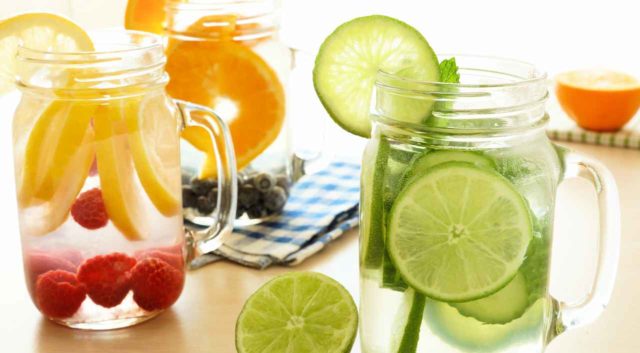
Quench your thirst and add a burst of flavor to your water with Tip 5! Discover how to enhance your hydration experience with simple and delicious additions that keep you refreshed throughout the day. Keep your water intake on track while enjoying a variety of tasty options.
Benefits Of Infused Water
Infusing water with natural flavors is not only a great way to enhance its taste but also a fantastic way to reap additional health benefits. Here are some reasons why opting for infused water can be beneficial for your overall well-being:
- Hydration: By adding natural flavors to your water, you might find yourself drinking more of it. This can help you stay adequately hydrated throughout the day, as sometimes plain water can be a bit dull.
- Improved Digestion: Certain fruits and herbs infused in water can aid digestion. For instance, adding slices of cucumber or fresh mint leaves to your water can help soothe an upset stomach and promote digestion.
- Extra Nutrients and Antioxidants: Infused water allows you to incorporate the nutrients and antioxidants present in the fruits, vegetables, and herbs you use. For example, infusing water with slices of citrus fruits like lemon or orange provides a dose of vitamin C and other beneficial antioxidants.
- Weight Management: Choosing infused water over sugary drinks or artificially flavored beverages can help reduce calorie intake. The natural flavors provide a refreshing and satisfying taste while keeping you hydrated, making it a smart choice for those watching their weight.
- Detoxification: Certain ingredients like lemon, cucumber, and ginger have detoxifying properties. Ingesting them through infused water can help flush out toxins from your body, leaving you feeling refreshed and rejuvenated.
Recipe Ideas For Infused Water
Creating your own infused water is simple, fun, and allows you to experiment with different flavors. Here are a few recipe ideas to get you started:
| Recipe | Ingredients |
|---|---|
| Berry Blast |
|
| Citrus Refresher |
|
| Tropical Twist |
|
Feel free to experiment with different combinations of fruits, vegetables, and herbs to find your favorite infused water recipes. Remember to use fresh, organic ingredients for the best results. Enjoy the refreshing flavors while staying hydrated and reaping the health benefits of infused water. Adding flavor to your water through natural infusions not only enhances its taste but also brings with it a range of additional benefits for your health. Enjoy the refreshing and nutritious boost by trying out some exciting infused water recipes – the possibilities are endless!
Tip 6: Consider The Temperature Of Your Water
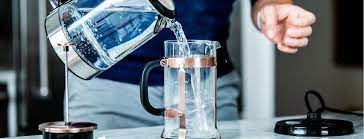
When it comes to drinking water, many people don’t give much thought to its temperature. However, the temperature of the water you consume can have an impact on your overall health and well-being. In this tip, we’ll be exploring why it’s important to consider the temperature of your water and the ideal temperature for different scenarios.
Cold Vs. Room Temperature Water
One common debate among water drinkers is whether it’s better to consume cold or room temperature water. The truth is, both options have their benefits, and the choice ultimately comes down to personal preference.
Cold water: Drinking cold water can be refreshing and invigorating, especially on a hot day or after a workout. It can help cool down your body temperature and provide instant relief. Additionally, cold water may help boost your metabolism, as your body needs to work harder to warm it up, resulting in a slight increase in calorie burn.
Room temperature water: On the other hand, room temperature water is believed to be gentler on your digestion. Drinking cold water can sometimes be uncomfortable or even cause temporary constriction of blood vessels in the stomach. Room temperature water may also help improve the absorption of nutrients from your food, as it aids in the digestion process.
The Ideal Water Temperature For Different Scenarios
The ideal water temperature can vary depending on the situation or objective. Here are a few scenarios where the temperature of your water may play a role:
| Scenario | Ideal Water Temperature |
|---|---|
| Hydration during exercise | Cool or room temperature |
| Soothing a sore throat or cough | Warm or hot |
| Managing muscle soreness | Cold or ice-cold |
| Relaxation and stress relief | Warm or hot |
In conclusion, the temperature of your drinking water is an important factor to consider. Both cold and room temperature water have their benefits, and the choice depends on personal preference and the situation. By understanding the ideal water temperature for different scenarios, you can ensure that you’re getting the most out of your hydration routine.
Tip 7: Stay Hydrated During Exercise

It is important to stay hydrated during exercise to support proper bodily function. Follow these rules for drinking water to ensure you maintain hydration levels and enhance your performance.
The Importance Of Hydration During Physical Activity
Staying hydrated during exercise is crucial for maintaining optimal performance and supporting overall health. When you engage in physical activity, your body’s temperature rises, which leads to perspiration. This sweating is an essential mechanism to regulate body temperature and prevent overheating.
However, sweating also causes fluid loss, and if you don’t replenish this lost fluid, it can lead to dehydration. Dehydration can negatively impact your exercise performance, increase fatigue, and even pose health risks.
- Maintain Fluid Balance: Drinking enough water helps your body maintain the right balance of fluids, ensuring proper functioning of organs, muscles, and joints.
- Regulate Body Temperature: Adequate hydration supports your body’s cooling system, helping to prevent overheating during physical activity.
- Optimize Performance: Being properly hydrated enhances your endurance, strength, and overall athletic performance, allowing you to push harder and reap the full benefits of your workout.
- Prevent Muscle Cramps: Dehydration increases the risk of muscle cramps, which can interfere with your ability to exercise comfortably and safely.
Hydration Strategies For Different Types Of Exercises
While staying hydrated is essential for all types of exercise, different activities may require varying approaches to hydration. Here are some general guidelines to help you optimize your fluid intake based on different exercise types:
| Exercise Type | Hydration Strategy |
|---|---|
| Aerobic/Cardiovascular Exercise | Drink water before, during, and after your workout. Aim to consume 7-10 ounces of fluid every 10-20 minutes during exercise. |
| Strength Training | Hydrate throughout your workout, taking sips of water between sets. Aim for 7-10 ounces of fluid every 10-20 minutes. |
| Endurance Sports | For longer workouts, consider sports drinks that contain electrolytes and carbohydrates to replenish lost nutrients. Drink according to your sweat rate and duration of exercise. |
| High-Intensity Interval Training (HIIT) | Drink water before, during, and after your workout. Monitor your body’s cues for thirst and hydration needs. |
Remember, these are general recommendations. It’s important to listen to your body’s thirst signals and adjust your fluid intake accordingly. Be aware of environmental factors such as heat and humidity, as they can increase fluid loss and impact your hydration needs.
By prioritizing hydration during exercise and tailoring your fluid intake to the specific demands of your chosen activity, you can optimize your performance, recovery, and overall well-being.
Tip 8: Monitor Your Urine Color
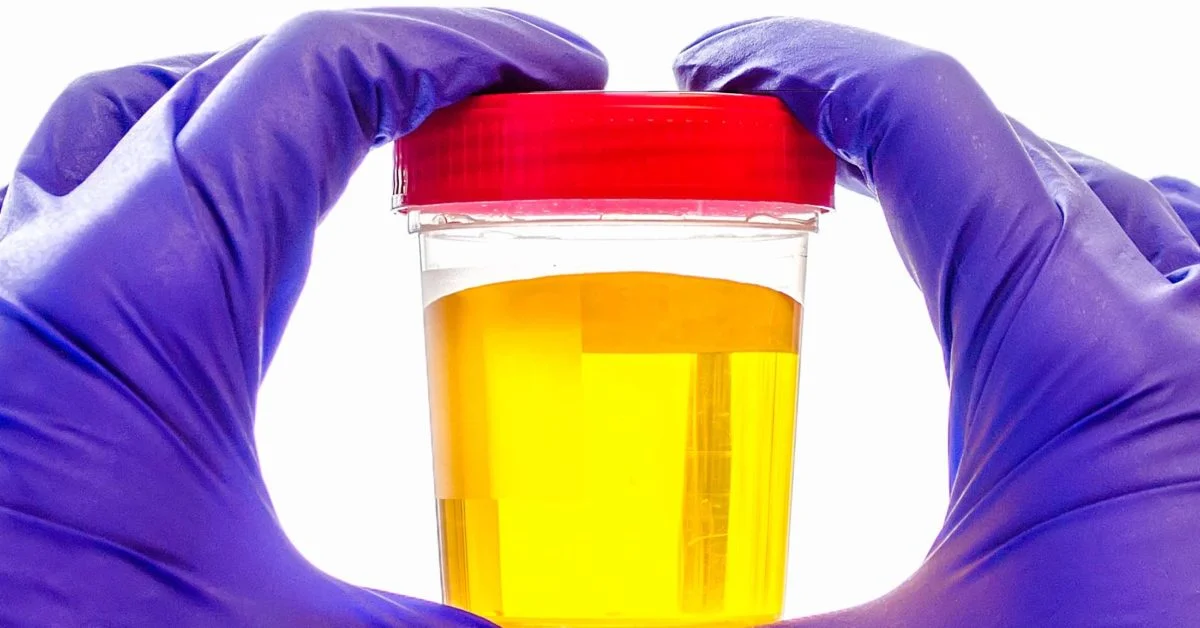
Monitoring your urine color is a simple yet effective way to assess your hydration levels. The color of your urine can provide valuable insights into your body’s hydration status, indicating whether you are adequately hydrated or if you need to increase your fluid intake. Understanding what urine color indicates and using a urine color chart to assess hydration can help you stay on top of your water consumption and ensure your body stays properly hydrated.
Understanding What Urine Color Indicates
The color of your urine is influenced by various factors, including your hydration levels, diet, medications, and certain medical conditions. Generally, urine color can range from pale yellow to dark amber, and each shade can provide clues about your hydration status. It’s important to note that urine color can vary slightly throughout the day due to factors such as the concentration of waste products and the amount of fluid you’ve consumed.
Here are some common urine colors and what they may indicate:
| Urine Color | What It May Indicate |
|---|---|
| Pale yellow | Well-hydrated |
| Transparent | Over-hydrated |
| Dark yellow | Dehydrated |
| Amber or honey-colored | Severely dehydrated |
Using The Urine Color Chart To Assess Hydration
By regularly observing and comparing the color of your urine to a urine color chart, you can gauge your hydration levels and make necessary adjustments to maintain optimal fluid intake. It’s essential to aim for a pale yellow color, as this indicates that you are adequately hydrated.
If your urine appears darker than pale yellow, it’s a sign that you may need to increase your water intake. On the other hand, if your urine is completely transparent, it may suggest that you are consuming excessive fluids and that you may want to moderate your intake slightly.
Keep in mind that while urine color can provide insights into hydration, it’s important to consider other factors such as thirst, activity level, and overall well-being. Staying mindful of your body’s needs and using urine color as a supplementary tool can help you maintain proper hydration levels and support overall health and well-being.
Tip 9: Be Mindful Of Water Quality
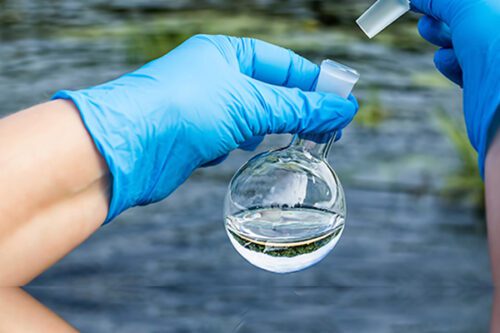
Be mindful of water quality and ensure you drink clean and safe filtered water. Invest in a good water filtration system to avoid consuming harmful contaminants.
Importance Of Drinking Safe And Clean Water
When it comes to staying hydrated and maintaining good health, drinking safe and clean water is of utmost importance. Water is essential for our body to function properly, and consuming contaminated or impure water can have harmful effects on our well-being. Waterborne diseases such as cholera, diarrhea, and typhoid fever are often caused by ingesting water that is not safe for consumption. These illnesses can lead to severe dehydration, vomiting, and even death if not treated promptly. Therefore, it is crucial to be mindful of the quality of water we consume and take necessary steps to ensure its cleanliness.
Simple Steps To Ensure Water Quality
- Test Your Water Source: Start by testing the water source you use for drinking. This includes tap water, well water, or any other source. Take a sample of water and have it tested by a certified laboratory to detect any potential contaminants.
- Install a Water Filter: Consider installing a reliable water filter system in your home to purify the water you consume. There are various types of filters available, such as activated carbon filters, reverse osmosis systems, and UV filters. The type of filter you choose depends on the specific contaminants present in your water source.
- Regularly Clean Water Storage Containers: If you store drinking water in containers at home, make sure to clean them regularly. Bacteria and other harmful organisms can grow in these containers if not properly maintained. Wash them thoroughly with hot soapy water and rinse well before refilling them.
- Avoid Using Plastic Water Bottles: Plastic bottles, especially those made from low-quality materials, can leach harmful chemicals into the water. Instead, opt for reusable glass or stainless-steel bottles to ensure the purity of your drinking water.
- Stay Informed about Water Quality Reports: Keep yourself updated with water quality reports provided by your local water authority or municipality. These reports provide valuable information on the quality of tap water in your area, including any potential contaminants detected.
- Boil Water for Added Safety: Boiling water is an effective way to kill most types of bacteria and parasites. If you are unsure about the quality of your drinking water, boil it for at least one minute to ensure any potential pathogens are eliminated.
By following these simple steps, you can ensure the water you drink is safe and clean, promoting better health and overall well-being. Remember, safeguarding your water quality is essential for a healthy lifestyle. So, make it a habit to prioritize water quality and take the necessary precautions to protect yourself and your loved ones from waterborne illnesses.
Tip 10: Incorporate Water-rich Foods In Your Diet
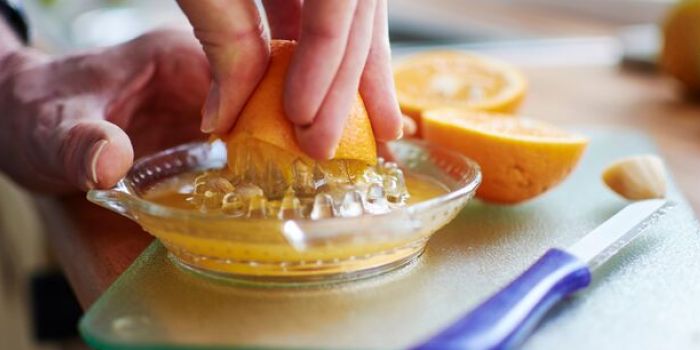
When it comes to staying properly hydrated, drinking water isn’t the only solution. Incorporating water-rich foods into your diet is a delicious way to increase your water intake. These foods not only provide essential hydration but also offer a wide array of health benefits. In this section, we will explore the benefits of water-rich foods and provide some examples of tasty options to include in your meals.
Benefits Of Water-rich Foods
Water-rich foods are not only refreshing but also highly beneficial for your overall health. Including these foods in your diet can:
- Provide hydration: As the name suggests, water-rich foods contain a high percentage of water that helps replenish your body’s water content, keeping you hydrated throughout the day.
- Aid digestion: These foods often have high fiber content, which promotes healthy digestion and prevents issues like constipation.
- Promote weight management: Many water-rich foods are low in calories and high in nutrients, making them the perfect addition to a balanced diet for weight management and maintenance.
- Boost nutrient intake: Water-rich foods are often packed with essential vitamins, minerals, and antioxidants, which contribute to overall health and well-being.
- Support skin health: Proper hydration plays a crucial role in maintaining healthy skin. Water-rich foods contribute to skin hydration, making your complexion radiant and youthful.
Examples Of Water-rich Foods To Include In Your Meals
Now that you understand the benefits of water-rich foods, let’s explore some delicious options to incorporate into your meals:
| Water-Rich Food | Water Content |
|---|---|
| Watermelon | 92% |
| Cucumber | 96% |
| Strawberries | 92% |
| Lettuce | 96% |
| Cantaloupe | 90% |
| Oranges | 87% |
Incorporating these water-rich foods into your diet is simple. Enjoy a refreshing watermelon salad on a hot summer day, snack on sliced cucumbers with hummus, or toss strawberries and lettuce into a vibrant salad. These options not only provide hydration but also add a burst of flavor and nutrition to your meals.
Frequently Asked Questions Of Correct Rules For Drinking Water
What Is The Rule For Drinking Water?
Proper water consumption rule: Drink enough water daily to prevent dehydration, usually about 8 cups or 2 liters for adults. Stay hydrated by sipping water throughout the day and increasing intake during physical activity or in hot weather. Listen to your body’s thirst cues and drink when you feel thirsty.
What Are Two Rules On How Much Water You Should Drink?
Two rules on how much water you should drink are: 1) The 8×8 rule suggests drinking eight 8-ounce glasses of water daily. 2) Listen to your body’s signals, such as feeling thirsty, to ensure you stay hydrated.
What Is The Healthiest Way To Drink Water?
The healthiest way to drink water is to stay hydrated throughout the day by sipping on small amounts frequently. Opt for clean, filtered water and avoid sugary drinks. It’s important to listen to your body’s thirst cues and drink when you feel thirsty.
Is There A Right And Wrong Way To Drink Water?
There is no right or wrong way to drink water. Simply stay hydrated throughout the day by drinking water when you feel thirsty.
How Much Water Should I Drink In A Day?
To stay properly hydrated, it is recommended to drink at least 8 glasses (64 ounces) of water per day.
Can I Substitute Water With Other Beverages?
While other beverages can contribute to your daily fluid intake, plain water is the best choice for proper hydration.
Is Drinking Water Before Meals Beneficial For Weight Loss?
Drinking water before meals can help you feel fuller, leading to consuming fewer calories and aiding in weight loss.
Can Drinking Water Improve My Skin Health?
Yes, staying hydrated can improve your skin’s overall health, promoting a radiant complexion and preventing dryness.
Does Water Intake Affect My Energy Levels?
Proper hydration is essential for maintaining optimal energy levels, as dehydration can lead to fatigue and decreased alertness.
Can Drinking Water Help Prevent Headaches?
Yes, dehydration can trigger headaches, so drinking enough water can help prevent or alleviate them.
Conclusion
Adhering to the correct rules for drinking water is essential for maintaining good health. By following these guidelines, such as hydrating regularly, utilizing a water filter, and being mindful of temperature, you can ensure that you are consuming safe and clean water.
Remember to keep your water intake steady, stay hydrated, and enjoy the benefits of a well-hydrated body. Stay healthy, stay hydrated!





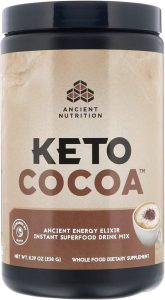
Be First to Comment